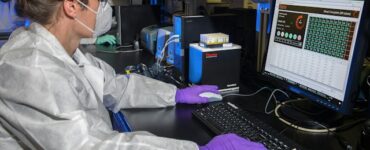Explore the environmental impact of nanotechnology – a realm of both opportunities and challenges. From sustainable advancements to responsible implementation, discover how nanotechnology is shaping the future of environmental conservation.
The intersection of nanotechnology and the environment is a crucial frontier, with the potential for groundbreaking advancements and consequential challenges. This article delves into the environmental impact of nanotechnology, highlighting the opportunities for sustainable progress and the challenges that demand thoughtful consideration.
Unveiling Nanotechnology’s Environmental Impact
Nanoparticles and Ecosystem Health
Understand the intricate relationship between nanoparticles and ecosystem health. We explore how these minuscule particles, while offering benefits in various applications, also pose potential risks to the environment and living organisms.
Nanotechnology in Water Treatment
Dive into the realm of nanotechnology in water treatment, showcasing its role in addressing water pollution and enhancing purification processes. Learn how nanomaterials are employed to create efficient and sustainable solutions for clean water.
Nanotech in Air Quality Management
Explore the applications of nanotechnology in managing air quality. Discover how nanomaterials contribute to the development of air purification technologies, mitigating the impact of pollutants and fostering cleaner atmospheres.
Opportunities for Sustainable Progress
Nanotechnology in Environmental Monitoring
Witness the transformative potential of nanotechnology in environmental monitoring. From nanosensors to data analytics, explore how these innovations enable real-time tracking of environmental changes, facilitating timely interventions.
Sustainable Agriculture with Nanotechnology
Delve into the realm of sustainable agriculture, where nanotechnology plays a pivotal role in enhancing crop yields and reducing environmental impact. Uncover how nanomaterials contribute to precision farming and eco-friendly agricultural practices.
Nanotechnology in Renewable Energy
Embark on a journey through the opportunities presented by nanotechnology in renewable energy. Explore how nanomaterials are optimizing the efficiency of solar cells, wind turbines, and energy storage systems, ushering in a sustainable energy era.
Challenges Demanding Responsible Implementation
Nanoparticles in Waste Management
Addressing concerns, this section explores the challenges of nanoparticles in waste management. From disposal issues to potential ecological impacts, we delve into the need for responsible waste management practices.
Regulatory Frameworks for Nanotechnology
Examine the challenges associated with developing regulatory frameworks for nanotechnology. As these innovations outpace regulations, the article discusses the importance of proactive governance to ensure the safe and ethical use of nanomaterials.
Frequently Asked Questions (FAQs)
Q: Can nanotechnology improve water purification processes? Indeed, nanotechnology enhances water treatment by providing efficient and sustainable solutions for purifying water from various contaminants.
Q: How does nanotechnology contribute to sustainable agriculture? Nanotechnology in agriculture improves crop yields and promotes eco-friendly practices, fostering sustainability in farming.
Q: What are the challenges of nanoparticles in waste management? Challenges include disposal issues and potential ecological impacts, emphasizing the need for responsible waste management practices.
Q: How does nanotechnology impact air quality management? Nanotechnology contributes to air quality management by developing purification technologies that mitigate the impact of pollutants.
Q: Is there a regulatory framework for nanotechnology? Developing regulatory frameworks for nanotechnology is a challenge, and proactive governance is essential to ensure safe and ethical use.
Q: Can nanotechnology optimize renewable energy sources? Absolutely, nanotechnology enhances the efficiency of solar cells, wind turbines, and energy storage systems, contributing to sustainable energy solutions.
The environmental impact of nanotechnology presents a dual narrative – one of immense opportunities for sustainable progress and another of challenges demanding responsible implementation. As we navigate this intricate landscape, it is imperative to harness the potential of nanotechnology for the greater good while ensuring the preservation of our environment.

Hi, I’m Jodie! I’m a spain-Moroccan writer with a passion for imagination, adventures, magic and stories with heart.
Please don’t hesitate to contact me for any questions, suggestions, comments or feedback.

















Add comment